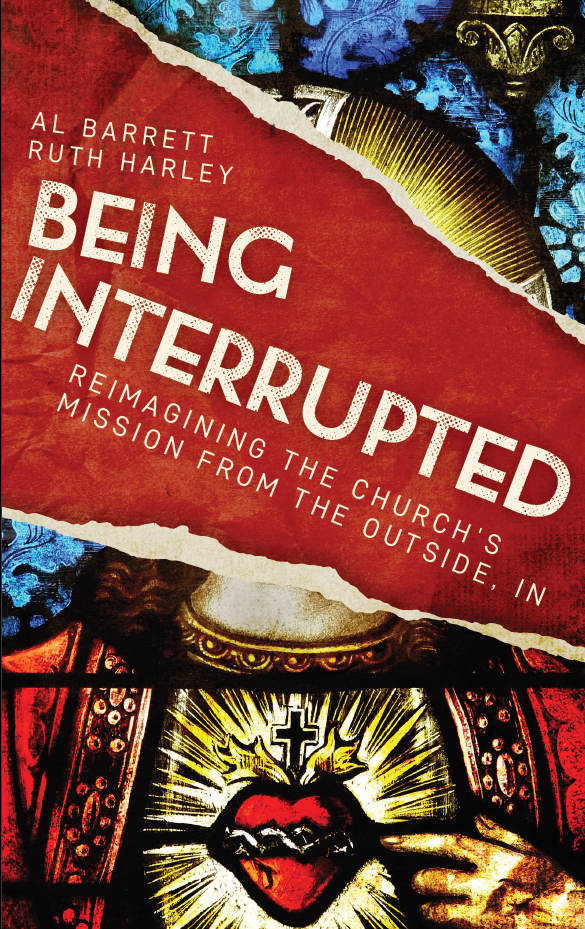"The top environmental problems are selfishness, greed and apathy, and to deal with these we need a cultural and spiritual transformation. And we scientists don't know how to to do that."
"Planting trees or insulating buildings will not address the underlying causes of the climate crisis. Our economy is rooted in a love of money, and is causing unprecedented suffering as a result. But perhaps Welby knows that his flock is not ready to hear a different message..."
I wonder if we, like Archbishop Justin, have not yet got nearly radical enough, in naming and pointing towards the 'deep culture change' that we, the Church, need to engage in.
1. In the face of the crises around us, many Christians believe that Christianity already has everything it needs to address these crises - and indeed has the moral and evangelical responsibility to offer those resources to others (we might call this a 'Provision' mindset).2. Some Christians are conscious that the Church as we know it claims to be for everyone, but in practice it isn't. And so, in the face of some of the crises around us, they call the Church to be more welcoming, to embrace more diversity within its makeup and structures (we might call this an 'Inclusion' mindset).3. But who thinks they are doing the 'including', and on what terms? Who is the 'we' that imagines it exercises the agency of 'being the Church'? In Being Interrupted, we sought to shine the spotlight on that imagined 'we' - particularly where that 'we' is predominantly white, middle-class and male, in makeup or in culture. We examined the 'privilege' that comes with inhabiting that 'we' - including the privilege to be oblivious of the experience of people located differently to 'us'. And we called on a white-, middle-class- and male-dominated Church to open itself up to be interrupted, challenged and changed by the gifts and challenges of its 'others' (what at times we've called 'Radical Receptivity').
Or, if that is a bit of a mouthful (and it surely is, and that is intentional to make a point about complexity, and not about academic prententiousness), we might draw on the work of poet Audre Lorde and ecofeminist Val Plumwood, and call it, simply, boldly:[ecocidal] imperialist white supremacist capitalist [ableist hetero-]patriarchy
mastery
(As in Lorde's famous maxim: 'The master's tools will never dismantle the master's house'.)
The thing is, mindsets 1 (Provision) and 2 (Inclusion) above are still utterly captive to mastery: being in charge, in control, centre stage. And I'm beginning to realise that our proposal 3 (Radical Receptivity) hasn't always named the power of mastery strongly enough, because in some ways it was still hanging on to it. In our chapter on the cross, for example, 'being interrupted' was worked out (through the figure of the Roman Centurion who witnessed Jesus' death) in terms of 'relocation', 'repentance', 'relinquishing' and 'receptivity': a spiral journey of a kind of 'schooling'. It was only in our final chapter - on the kind of resurrection that is located in the 'compost heap' - that we began to explore the direction that I find myself going in here...
4. Sometimes, what needs to happen, is not for us to 'provide' all the answers, or 'include' more diversity, or even 'receive' in ways that challenge and change us. Sometimes, what is needed is for us - and the structures in which we are entangled - to fall apart. To die, decay, decompose. And sometimes that Decomposition is, in fact, the only appropriate response to the crises that we face.
On the one hand, it's little wonder that the Archbishop of Canterbury is unable to articulate - or perhaps even contemplate - anything more radical than preaching an inoffensive message that 'God is green', and advocate for more tree planting and solar panels. He is profoundly invested in the ongoing survival of the institution of the established Church in (and 'of') England, with all its structures and hierarchies, Canons, patronage, liturgy, theology and so on that are profoundly entangled in a historic and ongoing culture of ecocidal imperialist white supremacist capitalist ableist hetero-patriarchy - aka mastery.
On the other hand, as a prominent public disciple of the incarnate, ensoiled Jesus of Nazareth, who so profoundly challenged the cultures and structures of mastery of his day that they inflicted on him a humiliating death, we might be justified in hoping to hear something more radical from Justin.
But, to finish with a little bit more self-critique, reflecting on Being Interrupted reminds me that each of us is inescapably a 'work in progress'. When Ruth and I were finishing off writing that book in early 2020, as the first wave of the COVID pandemic was still new and strange and unsettling around us, I didn't yet imagine the ways in which I would experience - personally, professionally and more widely in my relationships, places and entanglements both local and global - the painful, messy realities of falling apart, death and decomposition (and yes, the personal and the structural are entangled, inextricable). It's fair to say I know now (in fragments of raw, embodied wisdom) things that I didn't know then. And I also know that there's no going back.

No comments:
Post a Comment